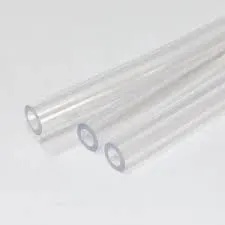Aug . 17, 2024 16:54 Back to list
8 Inch PVC Irrigation Pipe for Efficient Agricultural Water Management Solutions
Understanding the Importance of 8% 20-inch PVC Irrigation Pipes
Irrigation plays a crucial role in agriculture, ensuring that crops receive the necessary water for optimal growth. Among the various irrigation systems in use today, PVC (Polyvinyl Chloride) pipes have gained significant popularity due to their durability, cost-effectiveness, and ease of installation. This article focuses on the specific use of 8% 20-inch PVC irrigation pipes and their importance in agricultural practices.
The Role of PVC Pipes in Irrigation
PVC pipes have transformed the landscape of modern irrigation systems. They are lightweight, resistant to corrosion, and can withstand a variety of environmental conditions. The 20-inch diameter is particularly advantageous for large-scale agricultural operations as it allows for a substantial volume of water to be transported efficiently over long distances. This makes them ideal for farms that require extensive irrigation coverage.
Specification and Gradation
The designation of 8% typically refers to the pressure rating or class of the PVC pipe, indicating its ability to withstand internal water pressure. In this case, the 8% suggests a pipe capable of handling up to 8% of the maximum pressure rating specified by the manufacturer, making it suitable for various irrigation scenarios. Farmers must take into consideration the specific requirements of their crops, soil types, and water supply systems to choose the appropriate class of PVC pipes for their needs.
Benefits of Using 20-inch PVC Pipes
1. Efficiency The large diameter of 20 inches allows for increased water flow, which is essential for irrigating extensive land areas efficiently. This ensures that crops receive consistent watering with minimal interruption. 2. Longevity PVC pipes are known for their exceptional longevity, often lasting for several decades without significant degradation. This reduces the frequency of replacements and maintenance costs, providing a more sustainable solution over time.
8 inch pvc irrigation pipe

3. Cost-Effectiveness Given their durability and the reduced need for maintenance, 20-inch PVC pipes can be a cost-effective choice for irrigation systems. They are generally less expensive than metal alternatives and require less labor to install.
4. Flexibility and Versatility These pipes can be used in various irrigation systems, including drip, sprinkler, and flood irrigation, making them versatile for different types of crops and soil conditions.
Installation and Maintenance
Installing 20-inch PVC irrigation pipes requires proper planning and execution. The installation process involves trenching, laying the pipes, and ensuring secure fittings. It is essential to follow manufacturer guidelines to maximize the performance of the irrigation system. Regular inspections for cracks, leaks, or blockages can prevent potential issues that could disrupt water flow.
Environmental Considerations
In addition to their practical benefits, using PVC pipes for irrigation can also be more environmentally friendly compared to traditional methods. Their durability reduces waste from frequent replacements, and the efficiency of water usage can lead to less water being drawn from local sources, supporting sustainable agricultural practices.
Conclusion
In summary, 8% 20-inch PVC irrigation pipes represent a significant advancement in agricultural water management. Their efficiency, cost-effectiveness, and durability make them an ideal choice for farmers looking to optimize their irrigation systems. By understanding the specifications and benefits of these pipes, agricultural professionals can make informed decisions that enhance crop yield while promoting sustainable farming practices. As the demand for efficient farming methods continues to grow, PVC pipes will undoubtedly remain an integral part of modern irrigation solutions, helping to feed a growing global population.
-
High-Quality PVC PPR Pipes and Fittings Durable ERA PPR Solutions
NewsJun.10,2025
-
High-Quality Large HDPE Sheets & Large Diameter PVC Pipe Durable Large PVC Pipe Supplier
NewsJun.10,2025
-
High Density Polyethylene Cutting Board - Durable & Food Safe
NewsJun.09,2025
-
3 Inch PVC Pipe for Durable Irrigation Affordable & Reliable
NewsJun.09,2025
-
Premium PPR Plastic Water Pipe Fittings - Durable & Leak-Free
NewsJun.09,2025
-
Durable PVC Water Pipe for Reliable Supply Affordable & Easy Install
NewsJun.09,2025

